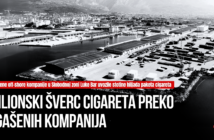Problematic debts – a state secret
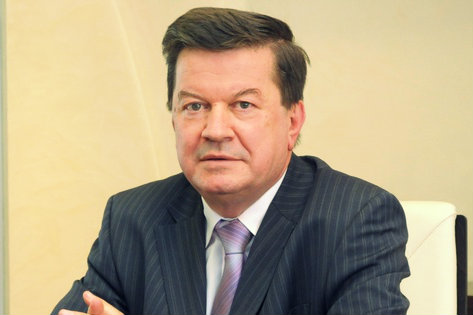 Agreement on Management, and then also the Contract on reprogramme of debts were signed in secrecy. On that occasion DPS even avoided its partners from the Government. Once they were made official, those documents confirmed doubts on privileged position of Vektra and its shadow partner, the Swiss Glencore
Agreement on Management, and then also the Contract on reprogramme of debts were signed in secrecy. On that occasion DPS even avoided its partners from the Government. Once they were made official, those documents confirmed doubts on privileged position of Vektra and its shadow partner, the Swiss Glencore
As the end of 20th century approaches, the data on business operations of KAP attract more and more attention and cause more and more concern. French commerical bank (CCF) stated in 1998 that KAP, due to a debt of 201 million dollars, was facing bankruptcy. The French proposed privatisation and sent an Information memorandum to addressess of 21 potential stategic investors.
However, Montenegrin state management delays privatisation. „We all know that KAP is greatly burdened by foreign and domestic debts, so at this moment it would probably be least acceptable for us to sell it “, explained Milo Đukanović, the then President of Montenegro, in September 1998. ,,This means that through a contract on management we will try to stabilize the business operation of KAP in the following few years, thus securing its maximum possible repayment of debts. We would thus increase the market value of KAP, after which it would be sold by tender.” We should remember that six years later, when KAP was privatized the debts were much higher!
TOMAHAWK PRIVATISATION: Contrary to expectations and recommendations of foreign advisors, by the end of 1998, the Government did not publish a tender for the selection of a company to manage KAP. Instead, direct negotiations were started and an agreement on management was reached with the Swiss company Glencore on October 7, even though the Government, according to the statement of the then Deputy Prime Minister Žarko Rakčević, never officially gave a permission for that Contract: “We expressed our disagreement, but there was no understanding on the side of the most responsible persons in DPS. The already tested system of black boxes was used: the contract was already concluded, far from the eyes of the public”.
Remembering those times Rakčević says: ,,Basides a few of us who publicly opposed the business with Glencore, the international experts also issued warnings. Representative of the British Know How Fund, Robert Stone, in his letter to the Government of Montenegro by the end of October ’98, posed the question: ,,How to prevent taking away of KAP’property by Glencore though conducting of a short-term sale policy, with simultaneous eroding of KAP’s capital “?
And indeed, stated Rakčević, there was drastic absorbing of property, not only that of KAP, but of the entire metallurgy-energy complex and overflowing of social wealth of Montenegro towards the privileged companies.
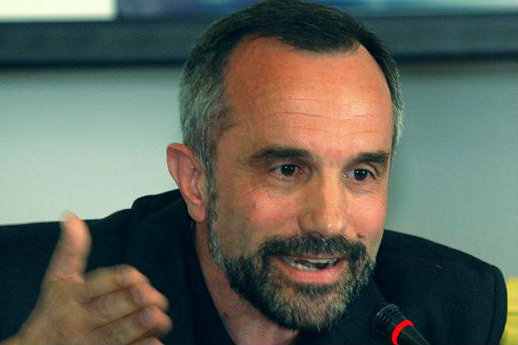 Professor of the Law Faculty in Podgorica Milan Popović called the Contract with Glencore ,,tomahawk privatisation”, because the document was signed in dramatic days when the country was threatened by NATO bombing, due to the policy of Slobodan Milošević in Kosovo.
Professor of the Law Faculty in Podgorica Milan Popović called the Contract with Glencore ,,tomahawk privatisation”, because the document was signed in dramatic days when the country was threatened by NATO bombing, due to the policy of Slobodan Milošević in Kosovo.
On behalf of the defenders of the Contract with Glencore, Mihailo Banjević, the then Director of the Pension and Disability Fund and a member of KAP management answered the reproaches. Banjević was a member of the negotiating team that agreed the terms of the arrangement with Glencore. After that, when the Contract came into force, he was appointed the head of the Aluminium Plant.
,,To avoid manipulations”, said Banjević, “on December 31 1998 debts amounted to 250 million dollars. This was determined by the auditing house PVHC.” Banjević explains the difference of 49 million in the data of CCF and PVHC with the newly arrived data on debts, which were not available to the French during the year: ,,In very difficult times both for the state and KAP we entered the arrangement with Glencore. We signed three contracts, the one on management, on advance payment and a commercial contract. Most critiques referred to the commercial contract because of the discount which Glencore obtained for aluminium. The discount was 60, 80 and 100 dollars per ton, and twenty dollars of transport costs from the Plant to the Port of Bar were calculated into the discount.”
Banjević concludes: ,,The Contract with Glencore may not have been brilliant, but it was the only possible and realistic.” In his view, the point of the arrangement with Glencore is that the business effects were positive, amounting to 25 million dollars.
NGO Group for Changes (GFC) had a considerably different view of this arrangement. „Immediately after taking over the business Glencore made a contract on credit with itself”, explained Milenko Popović on behalf of GFC. „Glencore gives to KAP, which it manages, a credit amounting to 25 million dollars, of which 10 milllion go to Vektra, and the interest on all 25 million is paid by KAP. Glencore takes over also the export business of aluminium ingots, with the price discount from 80 to 120 dollars per ton of exported aluminium. After that those ingots are processed into billets, which could have been done in KAP as well, and earns on these grounds additional 200 to 270 dollars per ton. A total of 280 to 390 dollars per ton of our aluminium goes to Glencore”, concludes Popović.
From that time originates also the decision to entrust the seven year long management of the Anode Factory (Anotech) to a consortium of three companies: Vektra (Podgorica), Venko (Huston) and CTI (Miami). Four years later, both advisors of the Government for privatisation of KAP – BNP Paribas and CRU Statexiz assessed that the contract with Anotech was fatal for the Plant and proposed to terminate it. After privatisation, the new owners of KAP did that.
Miroslav Ivanišević claims he ,,has nothing to do ” with the reprogramme of debts of the Aluminium Plant, and that he only signed what was within his competencies as the Minister of Finance
DEBTS GROW: Žarko Rakčević indicates non-adherance to the Contract by the signatories. Glencore, he explains, was obliged to make a business plan within ninety days from the day of signing of the Contract on Management, to make a strategy of modernization for KAP and of debts reprogramming. This was not done. Glencore never even submitted a report on management, even though the contract envisaged that it was to be submitted twice a year, claims Rakčević.
In the meantime, debts of KAP did not decrease but increased. And this was done to the benefit of Glencore, which was paid for the management services, in the first year – one million dollars, and in the second year one percent of the total turnover of the Plant. Only for interest Glencore obtained over four and a half million dollars from March ’99 to August 2000.
This part of the story about the Aluminium Plant could not pass without the engagement of Brković’s Vektra either. ,,Vektra was a guarantee to Glencore for the placement of capital in KAP until the signing of the Contract on Management on October 7”, explains Brković in the weekly Vreme by the end of 1998. ,,Since it effectively took over the management, Glencore directly sells aluminium and procures raw materials and production material from abroad. Vektra will operate part of the transport from Bar to Podgorica and back (most of the raw material transport is performed by Railroad transport company), as well as the shipping services.”
According to the contract on reprogramme of debts that was signed on April 27 2001 KAP was indebted for around 240 million dollars at that moment. The greatest creditors remained: Vektra from Podgorica (somewhat over 61 million dollars), Glencore claiming over 36 million dollars and Standard bank to which KAP owes over 29 million dollars. These three creditors claim 126,9 million dollars, or more than a half of the total debts of the Plant.
Nebojša Medojević pointed to another illogicality in this arrangement: ,,According to the contract on reprogramme from 2001, all the foreign currency transactions of the Plant go over the Standard bank from London. This is contrary to our laws on foreign currency business operation. According to our laws, KAP had to perform transactions with foreign companies by means of domestic banks. Thus, in the story on KAP everything is turned upside down: Vektra is a foreign company, and the Standard bank takes over the role of domestic business banks. This makes it clear that there is almost no segment in the business operations of the Plant which should not be the subject of interest of institutions that deal with commercial crime.”
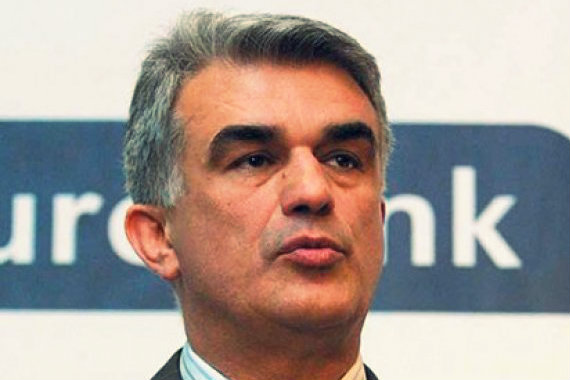 Beyond the Government decision, and contrary to the then valid Law on Incurring Debt, the reprogramme was signed by the then ministers of economy and finances Vojin Đukanović and Miroslav Ivanišević respectively. It was done in strict secrecy. Vojin Đukanović, subsequently, explained that the Contract on Reprogramme was certified ,,at the last minute, barely three days before KAP came into the position to stop production due to lack of production material”.
Beyond the Government decision, and contrary to the then valid Law on Incurring Debt, the reprogramme was signed by the then ministers of economy and finances Vojin Đukanović and Miroslav Ivanišević respectively. It was done in strict secrecy. Vojin Đukanović, subsequently, explained that the Contract on Reprogramme was certified ,,at the last minute, barely three days before KAP came into the position to stop production due to lack of production material”.
,,We said”, witnesses Rakčević, ,,if the contract on reprogramme of debts of KAP is signed, we will leave the Government. Despite this, our colleagues from the coalition signed the contract, which was illegal and illegitimate, because they indebted Montenegro, outside the Government and the Parliament. According to that contract three biggest creditors: Glencore, Vektra and Standard bank take over the state resources and their management. They become the true owners of the Plant, they obtain their representatives in the Managing Board.“
WHO IS THE BOSS: In order for the picture of the ,,business of the century” to be complete, it is worth looking into at least the basic information on Glencore. The company was founded by the USA citizen Marc Rich, after he fled America in 1983, where he was sentenced for tax evasion (,,the biggest in the history of USA “, claims the legendary Mayor of New York Roberto Giuliani), breach of sanctions against Iran, which USA introduced due to several years long imprisonment of the Embassy official in Tehran and abuse in the trade in oil derivatives procured from the commodity reserves (preferential procurement at the time of oil crisis), by whose illegal sale the company Marc Rich / CO earned several hundreds of millions of dollars.
After escape, Rich found refuge in Switzerland, since that country does not have a contract on extradition of convicts with USA. There he founded a new company, but, as the world media claim, he kept his old habits. ,,Marc Rich is connected with the Russina mafia “, is only one of the world press headlines in which the founder of Glencore is suspected of new tax evasions or participation in international plots of money laundering. Interestingly enough, part of these charges were brought in the period of time when KAP made most of its debts towards Glencore.
The court in New York sentenced Rich to 300 year imprisonment sentence due to evasion of 48 million of taxes and money laundering. Even though he paid to American tax authorities 150 million for taxes; it was only in 2000 that Bill Klinton, on the last day of his second term of office as Predsident, saved Rich from threats of imprisonment, by amnestying him. Rich’s former wife Denise previously donated almost two million dollars to Klinton’s Democratic Party.
Vojin Đukanović pointed out that in 2001 as the Minister of Economy he signed a Contract stating that if KAP was not able to pay the debts towards creditors during privatisation, the Government would do that.
According to the articles from foreign media, which the daily Dan brings in October 2004, Rich left Glencore by the end of 1993, to find himself again in business in 1995 with the company Marc Rich Group, whose seat is in Zug, a Swiss town which is also the seat of Glencore. Glencore trades in non-ferrous metals, energy generating products and food. The names of its true owners are not known.
COMPLAINTS: And as a confirmation of their statements, the leaders of the Group for Changes filed crime reports to the State Prosecutor for signing of the agreement on management and that on reprogramme of debts aginst: Filip Vujanović, former Prime Minister and current President of the State, his ministers Vojin Đukanović and Miroslav Ivanišević, and against former directors of state funds: Mihailo Banjević, Branimir Bojanić and Božo Mihailović.
,,The basic characteristic of reprogramme of KAP’s debts is a discriminatory approach to creditors”, assessed Milenko Popović, „96.7 percent of Glencore’s claims, 96.1 percent of those of the Standard bank and 86.8 percent of Vektra’s claims were classified as the privileged A and B class of credits. Only 13 percent of debts to Elektroprivreda and 14 percent of claims of Boksiti were classified into this category, while the government claims were put entirely into C and D class.”
About the crime report of GFC, the Deputy Prime Minister Miroslav Ivanišević stated on July 22 that he „had nothing to do” with the reprogramme of debts of the Aluminium Plant, and that he signed only what was under his competencies as the Minister of Finance. He explained he signed that „in the event KAP was sold, the main creditors would be compensated for through privatisation by a strategic investor, i.e. through revenues from privatisation”.
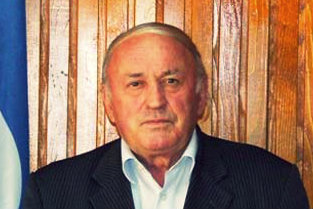 However, Vojin Đukanović pointed out that, as the Minister of Economy, he signed in 2001 a Contract stating that if KAP was not able to, the Government would pay the debts to creditors during privatisation. He said that the Commission for Economic Policy gave consent to the Contract and reminded that in a letter to the Government he wrote that it was ,,the best event of that time “, adding that he does not worry about the crime report, because that is “nonsense”.
However, Vojin Đukanović pointed out that, as the Minister of Economy, he signed in 2001 a Contract stating that if KAP was not able to, the Government would pay the debts to creditors during privatisation. He said that the Commission for Economic Policy gave consent to the Contract and reminded that in a letter to the Government he wrote that it was ,,the best event of that time “, adding that he does not worry about the crime report, because that is “nonsense”.
Apparently similar conclusions were made in the prosecution office since reports did not end in the court. The authorities did no care about the critiques. The process of final privatisation of KAP could begin.

